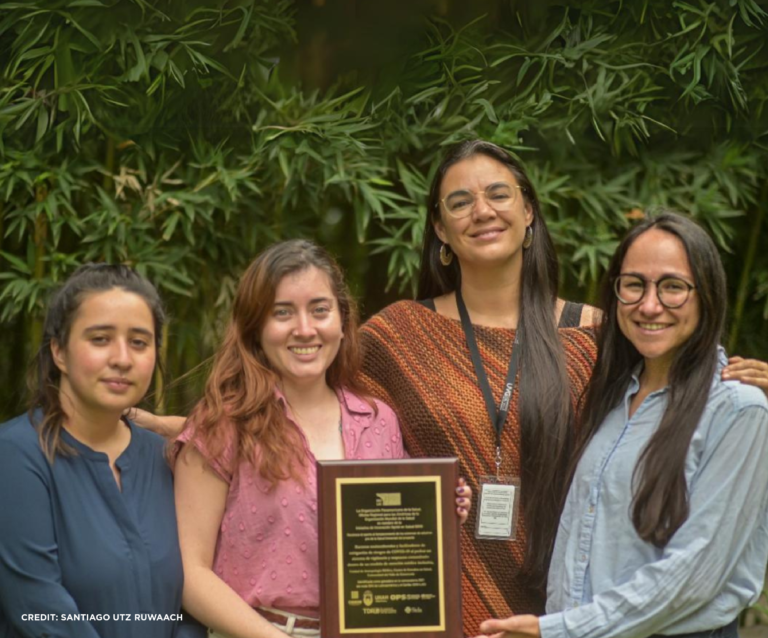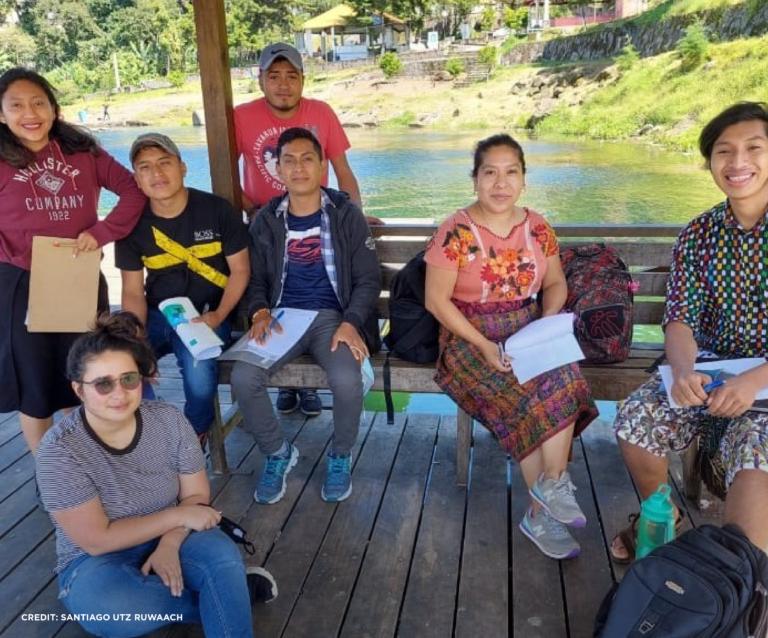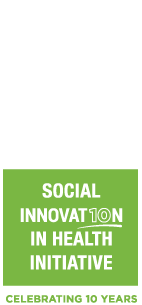2021 RECOGNIZED innovation
Research is known to be an activity that involves a lot of forethought, planning, and consideration of highly skilled experts. In 2020, a team of anthropologists, Dr Monica Berger, Daniela Ochaita, and Alessia González; together with epidemiologist Daniela Da’Costa and Alex Petzey, community researcher, were conducting research to better understand how indigenous Mayan communities living in the rural central highlands of Guatemala accessed health services. Then came the alarming news of a global pandemic, and this halted this team of researchers in their steps. They quickly realized that they were not going to be able to continue their research due to the nationwide imposed lockdowns, and simultaneously they felt stirred and compelled to contribute their skills in a way that could support the emergency response for the indigenous community of Santiago Atitlán. It didn’t take long for this interdisciplinary team to design a new creative project that could do just that.
‘Utz Ruwaach’ is an indigenous phrase meaning having ‘good balance’ and ‘integral wellbeing’. These concepts were at the heart of the project the team would implement in the rural municipality in the southern basin of Lake Atitlán, home to 56,000 people of whom 72% are indigenous Mayan. The focus of the project was to support the identification of indigenous Mayan people affected by COVID-19 and ensure that they receive the appropriate timely care. Some of the design considerations for this project included: a) implementing the project in a way such that it will support and strengthen the government health systems’ emergency response, b) ensuring the project is contextualized based on the lived reality of the indigenous community and including traditional Mayan health leaders, who are often a first access point for care, and c) overcoming the lack of trust the Mayan population had to seek care if they were Covid-19 positive.
The ‘Santiago Utz Ruwaach’ project was comprised of two elements. First, a COVID-19 communication campaign was conducted based on cultural ways of explaining illness in the local indigenous language (Tz’utujil), using posters, videos and radio. Second, once people were aware of COVID-19, they could call the telephonic health information service, which the team established. By speaking to a trained counselor in their local language, the community could get more information on COVID-19 and report any signs or symptoms they may be experiencing. This call center was central to identifying new cases of COVID-19 and connecting people infected to the local health authorities for surveillance and follow-up care. The call center and the surveillance data collected ensured effective vaccination efforts later in the pandemic.
Being anthropologists and having a deep awareness of the importance of social and cultural factors that influence people’s trust in any new health intervention, the team believed in working with the community, instead of working for the community. Implementation through establishing partnerships with local authorities and the local community was a core strategy towards building trust and enhancing the capacity of local people. The team established a community committee, with representative leaders from six different sectors to oversee the implementation process and give monthly feedback. The communication campaign was co-designed with representatives from the mayor’s office, teachers, parents, youth, members of the community development council. Indigenous community members were capacitated with the knowledge to spread the messages. The telephonic information service was conducted in collaboration with the Ministry of Health, Fundegu, a nonprofit organization that had software capable of tracking and monitoring identified cases of COVID-19, and local community members who served as call center agents.
“It’s about working WITH the community, instead of working FOR the community”
— Monica Berger
In addition to creating and implementing a new project, the team was committed to understanding the impact of their efforts and how it is affecting the community. They invested in training 8 young local community researchers, who were given skills and tools to gather the perceptions, views, and experiences of the community. The data and insights gathered by these community researchers played a critical role in informing how the project should be tailored and adapted to serve the local population best. In addition, using people from the local community as researchers contributed to changing the power dynamics that existed between researchers as people from the outside and the community.
“We began to work with these community leaders and community researchers to develop their research potential much more strongly to continue generating and collecting data with the quality that we achieved that could be useful for the decision-makers, which is the Ministry of Health.”
— Daniela Ochaíta
TEAM
This project is made possible through the creative efforts of:
Dr. Mónica Berger, Daniela Ochaita Daniela Da´Costa, Alessia González, Alex Petzey, Awaraham Mendoza, Maria Izabel Ramírez, Lesly Maldonado, Diego Sapalú, Ronald Coché, Fidel Vásquez, Petro Esquina.


Learn More About this Project
WATCH:
ACKNOWLEDGEMENTS
This innovation profile was written by Lindi van Niekerk, PAHO consultant, based on documents supplied by Santiago Utz Ruwaach and an interview conducted by Charlotte Scott and Kathleen Agudelo, from the SIHI LAC Hub. Website design completed by Amy Clarke and Claudi van Niekerk from Chembe Collaborative.

